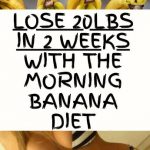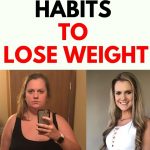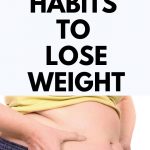The Morning Banana Diet, sometimes known as the “Asa-Banana Diet” (Asa means morning in Japanese), gained significant popularity in Japan around 2008 and subsequently attracted attention internationally. Created by Japanese pharmacist Sumiko Watanabe to help her husband, Hitoshi Watanabe (who studied traditional Chinese medicine), lose weight, the diet reportedly led to significant weight loss for him, fueling widespread interest and several books on the topic.
But what exactly does this diet involve, and how does it supposedly work? Unlike what the name might suggest, it doesn’t mean eating only bananas. Instead, it revolves around starting your day with bananas and following a specific set of lifestyle rules. Let’s examine the components and evaluate the claims often associated with this plan.
The Core Principles and Rules
The Morning Banana Diet operates on a distinct set of guidelines:
-
Breakfast Rule: Bananas Only (Until Satisfied)
- The core rule is to eat one or more raw, uncooked, unfrozen bananas for breakfast.
- You can eat more than one, but the key is to stop when you feel satisfied, not stuffed – proponents often use the guideline of feeling about “80% full.”
- If bananas aren’t available or desired, other single fruits can reportedly be substituted, but only one type of fruit per breakfast.
-
Lunch and Dinner Rule: Eat “Normally” (with Caveats)
- For lunch and dinner, you are allowed to eat whatever you choose, with no specific restrictions on food types or portion sizes mentioned in the original concept.
- However, desserts are strictly forbidden with any meal.
- Similar to breakfast, the “80% full” guideline applies – eat until satisfied, not stuffed.
- Dinner must be eaten by 8:00 PM at the latest, with 6:00 PM being preferable.
-
Hydration Rule: Water Only (Room Temperature)
- The only beverage permitted throughout the day is water, preferably mineral or filtered, served at room temperature.
- Water should be sipped, not used to wash down food.
- There isn’t a strict required amount, but excessive consumption is discouraged.
- Alcohol (like beer or wine) is generally discouraged but may be permissible only on rare social occasions.
-
Mindful Eating Rule: Chew Thoroughly
- Emphasis is placed on eating mindfully – chewing bananas and other foods properly and paying attention to their taste and texture. This complements the “80% full” rule.
-
Snack Rule: Limited Afternoon Snacks Allowed
- A single snack is permitted in the afternoon, typically around 3:00 PM.
- Some sweet snacks like chocolate or cookies are allowed, but others like ice cream, donuts, or chips/crisps are generally not. The rationale for these specific distinctions isn’t always clear beyond avoiding obvious high-calorie junk food.
- Salty snack options like popcorn might be acceptable (with awareness of fat content).
- If hunger strikes after dinner, fresh fruit is the only option, but this shouldn’t become a daily habit.
-
Sleep Rule: Early Bedtime
- Go to bed before midnight. An earlier bedtime is encouraged.
- There should be at least a four-hour gap between your last meal (or snack) and bedtime.
-
Exercise Rule: Optional and Moderate
- Formal exercise is not required as part of the diet.
- If you choose to exercise, it should be moderate and not cause undue stress. Gentle activities like walking daily are encouraged if possible.
-
Diary Rule: Keep a Journal (Optional)
- Tracking progress and experiences in a diary was part of the original online community surrounding the diet and is often encouraged.
Potential Mechanisms and Considerations
Why might this diet lead to weight loss for some individuals?
- Calorie Reduction: Replacing a potentially higher-calorie breakfast with relatively low-calorie bananas automatically creates a deficit at the start of the day. The elimination of desserts and restriction of snacks also cuts calories. However, the overall daily calorie intake heavily depends on the “eat normally” lunch and dinner choices – if these meals are very large or high-calorie, they could negate the breakfast savings.
- Increased Fiber & Satiety: Bananas provide dietary fiber, which can contribute to feeling full in the morning.
- Mindful Eating: The emphasis on chewing thoroughly and stopping at “80% full” is a core tenet of mindful eating. Practiced effectively, this can prevent overconsumption regardless of the specific foods eaten.
- Improved Hydration & No Liquid Calories: Drinking only water eliminates calories from sugary drinks, juices, and potentially excessive alcohol.
- Better Sleep Hygiene: The rules around early dinner and bedtime promote habits linked to better sleep, which can positively influence appetite-regulating hormones.
Important Caveats and Criticisms
Despite its popularity and anecdotal success stories, the Morning Banana Diet has several limitations and concerns:
- “Fast Weight Loss” Claims: Like most diets promising rapid results, any initial weight loss is likely a combination of water weight and some fat loss due to calorie changes. Significant, sustainable fat loss takes time and consistent effort. Anecdotes (like the founder’s husband losing 38 lbs) don’t guarantee results for others and lack scientific rigor.
- Nutritional Balance: A breakfast of only bananas lacks protein and healthy fats, which are important for sustained energy and satiety. The overall nutritional quality of the diet depends entirely on the unguided lunch and dinner choices. It could easily be low in protein or other essential nutrients.
- Vague Lunch/Dinner Guidance: The instruction to “eat normally” without limits can be counterproductive for weight loss if an individual’s normal habits involve large portions or high-calorie foods, especially if the mindful eating aspect isn’t successfully implemented.
- Arbitrary Rules: Some rules, like room-temperature water or the specific snack restrictions, lack strong scientific backing and seem more ritualistic.
- Downplaying Exercise: While forcing exercise isn’t necessary, actively discouraging it or minimizing its importance overlooks the significant benefits of physical activity for overall health, muscle maintenance, metabolism, and sustainable weight management.
- Lack of Scientific Evidence: The Morning Banana Diet is based on anecdotal reports and personal experience, not robust scientific studies comparing it effectively and safely against other balanced weight loss methods.
Conclusion
The Morning Banana Diet is a unique plan characterized by its banana-focused breakfast, mindful eating principles (“80% full”), and specific rules regarding meal timing, hydration, and sleep. Its potential effectiveness likely stems from creating a calorie deficit (primarily via the breakfast swap and eliminating desserts/liquid calories) and fostering mindful eating habits.
However, claims of “fast weight loss” should be viewed skeptically. The diet’s nutritional balance is questionable, particularly the lack of protein and fat at breakfast, and its reliance on unrestricted lunch/dinner choices could be problematic. The arbitrary nature of some rules and the downplaying of exercise also raise concerns. It is unlikely to be superior to, and potentially less balanced than, established methods focusing on consistent, well-rounded nutrition across all meals combined with regular physical activity.
As with any specific diet plan, especially one with restrictive rules, it’s wise to consider your individual health needs and consult with a healthcare professional or registered dietitian before making significant changes to your eating patterns.1 They can help you develop a safe, effective, and sustainable plan tailored to you.



